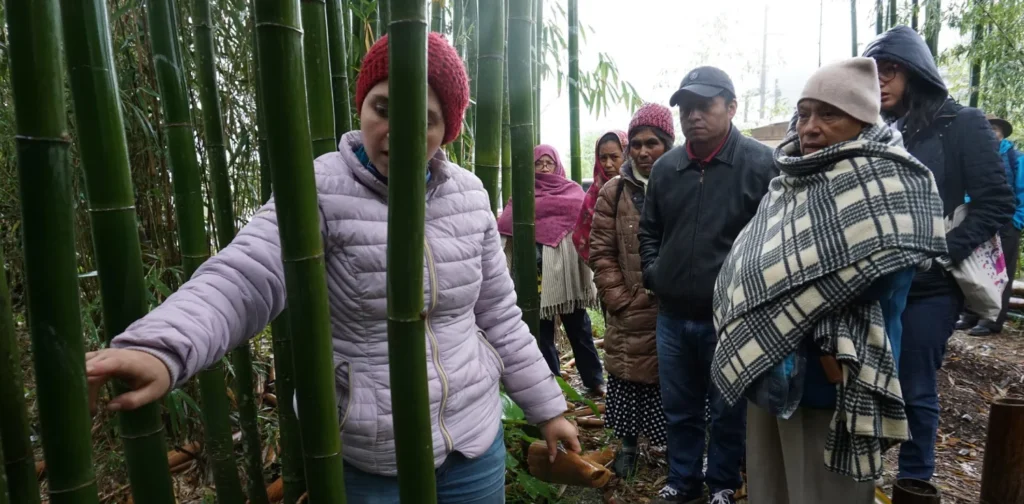How Tosepan Titataniske Leads Community Efforts for Sustainable Tourism in Mexico

Photo: Innovando la Tradicion
As globalization continues to soar, tourism becomes an increasingly important sector. At the same time, the tourism industry’s pressure on the environment and local communities keeps getting heavier. Thus, efforts toward sustainable tourism emerge, such as by limiting the number of tourists and mainstreaming environmental education. In Mexico, the Tosepan Titataniske cooperative proves that Indigenous communities can lead the way in building fair, sustainable, and empowering tourism initiatives.
Redesigning Tourism
Tourism contributes about 10% to the global GDP and provides over 300 million jobs, according to the World Travel & Tourism Council. However, mass tourism models often bring harmful impacts, including environmental damage, widened economical gap, and cultural degradation. The sector also accounts for approximately 8.8% of total global carbon emissions.
In this light, transforming the tourism industry to become more sustainable is crucial. The World Tourism Organization (UNWTO) emphasizes the need to shift toward tourism that fosters social inclusion, environmental conservation, and local economic self-reliance. Community-led initiatives, like the Tosepan Titataniske in Mexico, offer concrete examples of how this transformation can take shape.
Tosepan Titataniske, Ecotourism by and for the Community
Located in the Sierra Norte region of Puebla, the Tosepan Titataniske cooperative was founded in 1977 by the Nahua and Totonac Indigenous peoples. It has pioneered a solidarity-based economic model that integrates agroecology, microfinance, cultural preservation, and sustainable tourism. As of 2025, Tosepan Titataniske has more than 35,000 members from 430 villages supporting various initiatives and activities.
One of its key initiatives, Tosepan Kali, is a community-managed eco-lodge and learning center. It offers activities such as organic farm tours, introductions to native stingless bees (melipona), demonstrations of traditional coffee and cacao processing, and workshops on local herbal medicine and weaving. The site also incorporates environmentally friendly technologies, including accommodations built with sustainable bamboo architecture, rainwater harvesting systems, and solar energy regeneration.
All activities are led by residents, supporting local involvement in tourism operations. Furthermore, this model helps them maintain control over cultural representation and economic benefits. That way, Tosepan Kali can serve as an act of resistance against the marginalization of Indigenous peoples in development and conservation efforts. Visitors can come for leisure as well as to learn about food security, nature preservation, and the vital role of Indigenous communities in protecting the environment.
Unfortunately, the Tosepan Titataniske still faces challenges, especially in marketing, promotion, and sales. In response, they have begun decentralizing services and building a network of ecotourism hubs connected to nearby cities.
Community Leadership and Collaboration
Successful grassroots and community-led initiatives exist everywhere, usually in absence of a proper response and management from the government. However, like the Tosepan Titataniske, many struggle with funding, market reach, and visibility. For long-term sustainability, strategic collaborations are vital so community initiatives can overcome technical gaps without losing their autonomy. Such support is essential for fair, sustainable, community-led tourism models to grow and inspire similar efforts around the world.
Editor: Nazalea Kusuma


 How Human Behaviour Becomes the Real Engine of Sustainability Action
How Human Behaviour Becomes the Real Engine of Sustainability Action  Germany to Improve Protection Measures for Critical Infrastructures
Germany to Improve Protection Measures for Critical Infrastructures  Data Center Boom: Looking at India and Beyond
Data Center Boom: Looking at India and Beyond  Assessing Indonesia’s Step into Global Carbon Markets
Assessing Indonesia’s Step into Global Carbon Markets  Prioritizing Finance for Nature for Healthy and Resilient Ecosystems
Prioritizing Finance for Nature for Healthy and Resilient Ecosystems  Integrating Indigenous Practices into Australia’s Defense Against Heatwaves
Integrating Indigenous Practices into Australia’s Defense Against Heatwaves